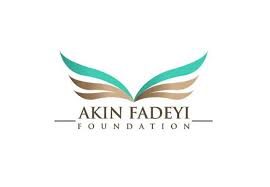The Akin Fadeyi Foundation, a leading nonprofit multimedia organization organization that deploys communications, media, and technology in activism to push for transformational changes in the Nigerian public narrative space is partnering with The MacArthur Foundation to host an online conference to address the relegation of gender issues in the Nigerian political space. The topic for discussion is titled: MEDIA CONVERSATION ON GENDER INCLUSIVE GOVERNANCE.
The event which comes up Tuesday 19th July 2022 will be a virtual Open-House starting from 10.45am (WAT).

The event will be kick started with a media conversation led by Dr. Amina Salihu from the MacAuthur Foundation, Mrs. Bamidele Ademola-Olateju, Hon. Commissioner for Information, Ondo State Government, Mr. Simon Kolawole, CEO,Cable Online News.
Other notable speakers are Dr Lilian Anomnachi, Executive Director, Technical Advice Connect LTD/GTE | TAConnect, Adekunle Shotubo from the Energy Sector, Hajia Saudatu Mahdi, ED of Women’s Rights Advancement & Protection Alternative – WRAPA Nigeria, Dr Chido Onumah, ED, AFRICMIL and political Editors from across Nigerian Media.
This even became necessary because many multicultural, multiethnic, multireligious societies have over the years devised ways of creating inclusive sociopolitical systems that tend to provide platforms that are non discriminatory to minorities.
Unfortunately, in a place like Nigeria, inclusivity tends to cater only for ethnicity, religion and sectional difference. But there are still multiple layers of fault lines created by sociopolitical exclusions such as gender, economic, literacy and other orientations.
Having lost the opportunity to mainstream gender in the top echelon of the political structures of the leading political parties, we still have till August to push it at state levels.
As the leading political parties in Nigeria such as the APC, PDP, Labour Party have all picked their Presidential Aspirants, it was apparent that not a single woman was picked. Even when they sent so-called placeholders to INEC pending the announcement of their running mates, women were not “good enough” to be forwarded as placeholders.
Nigeria has not been in lack of quality women to play roles in politics. A number of the factors that have skewed the system against women include pervasive norms and cultural beliefs that emphasize the subordinate position and roles of women in society. More recently, this has been buttressed by the patriarchal configuration of institutions and systems that have set up unreasonable standards that delimit the access and participation of women in the consequential public space, such as the role of money in our political process, making it difficult for women to get involved without serious sponsors.
As gender inequality in this country has been negatively influenced by different cultures and beliefs, it is evident how in most parts of Nigeria, females are considered subordinates to their male counterparts. This situation is not limited to the domestic sphere and politics alone, other spheres, including the corporate space of work also evince the burden of gender inequality. We have still not tried enough to wean our nation off the erroneous idea that women are essentially best suited in the domestic front as home keepers.
Join Zoom Meeting
https://lnkd.in/erqwuFQD
Meeting ID: 843 6450 7288
Passcode: 194492
#womenempowerment ElectHER Women Power Africa Women of Influence #genderequality #gendergap UNWomen Wwk #governance UN Women.

